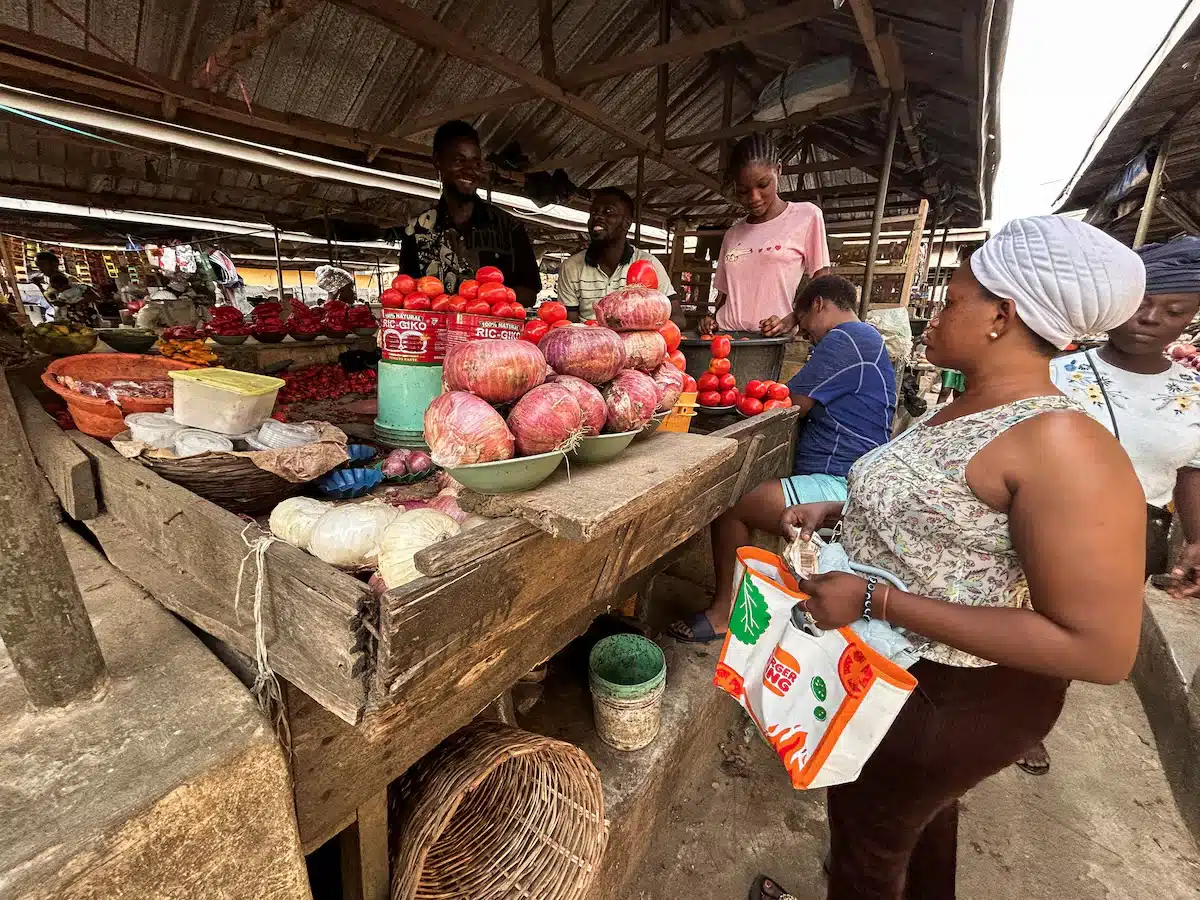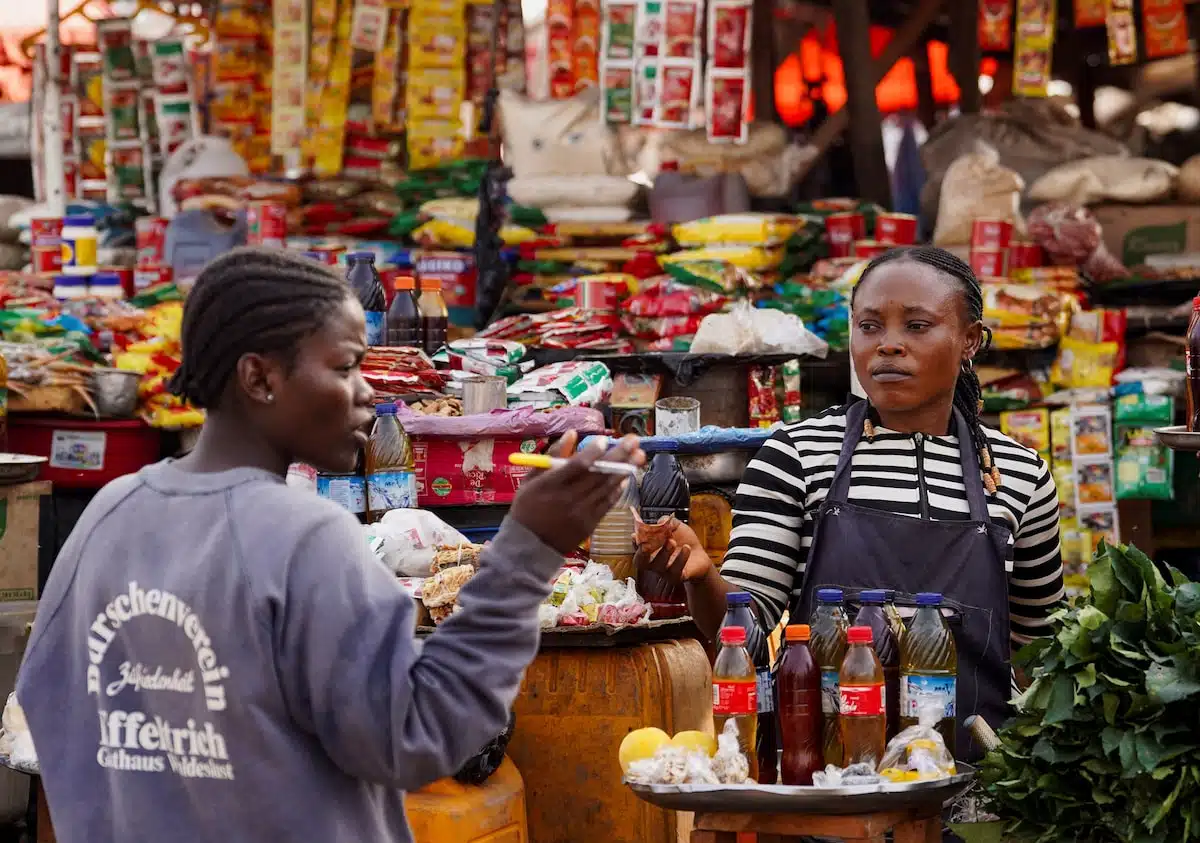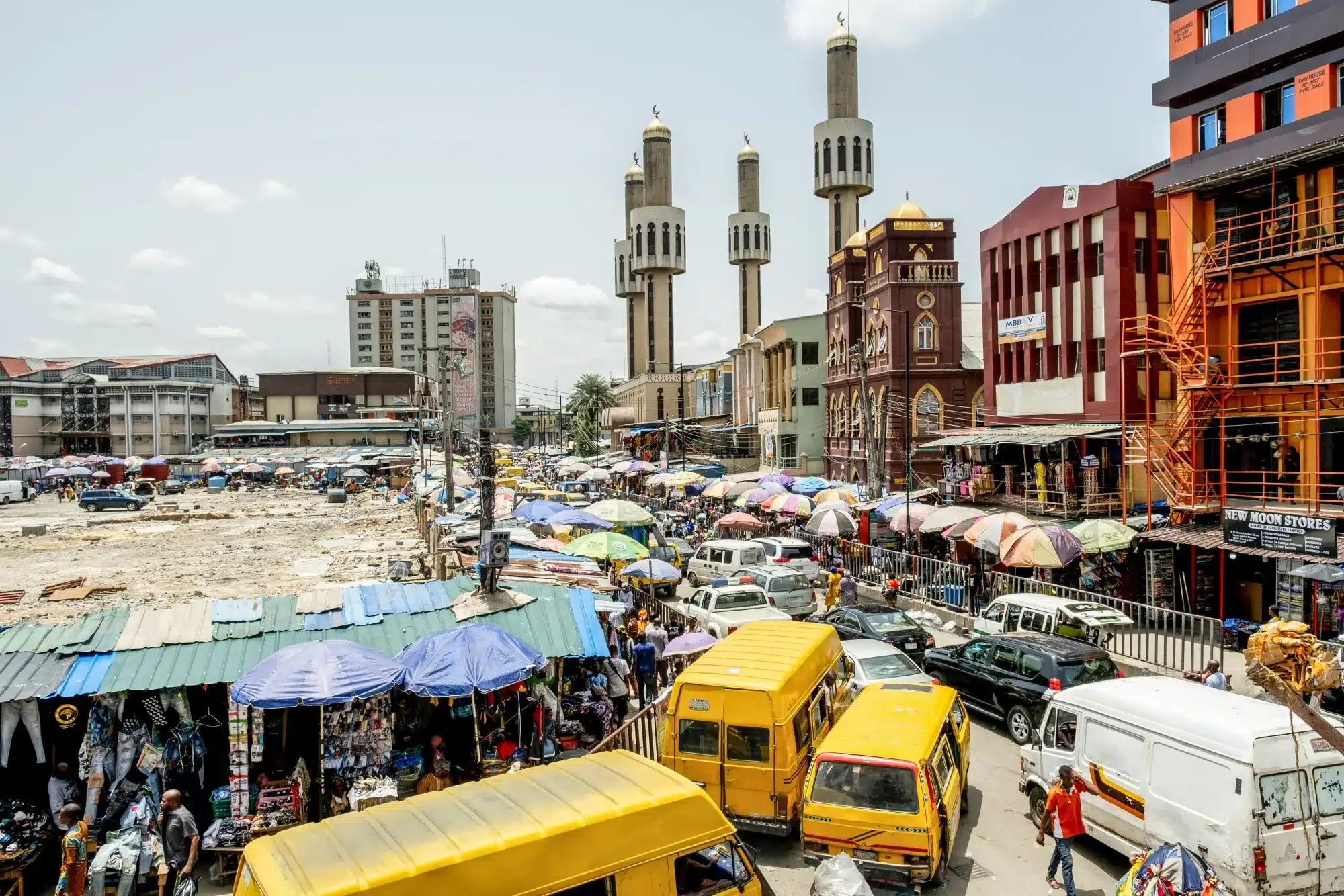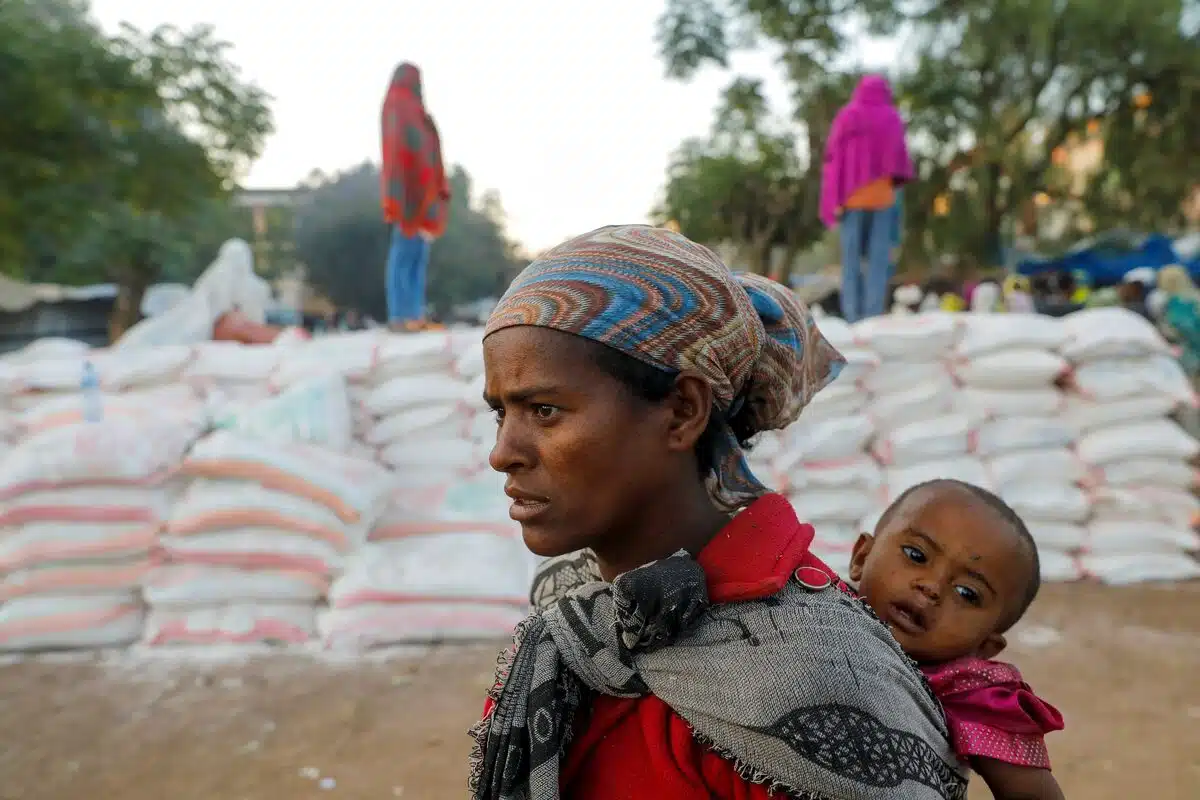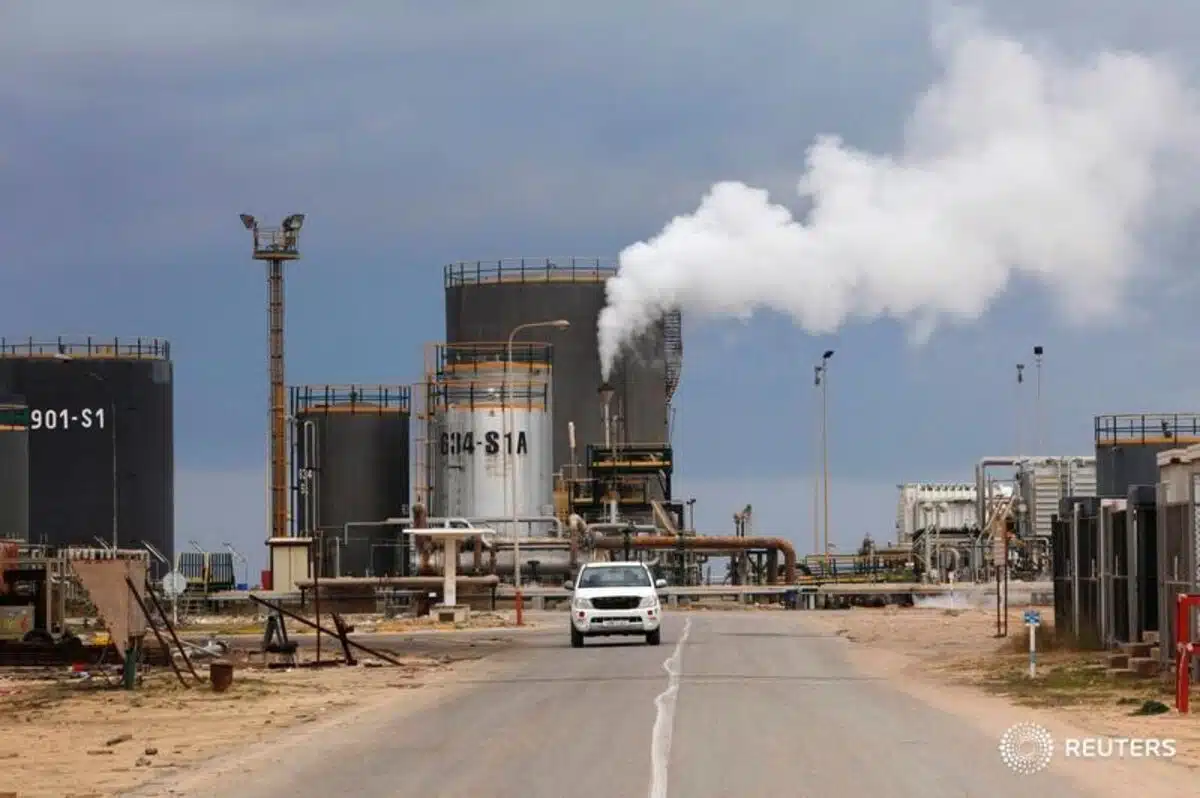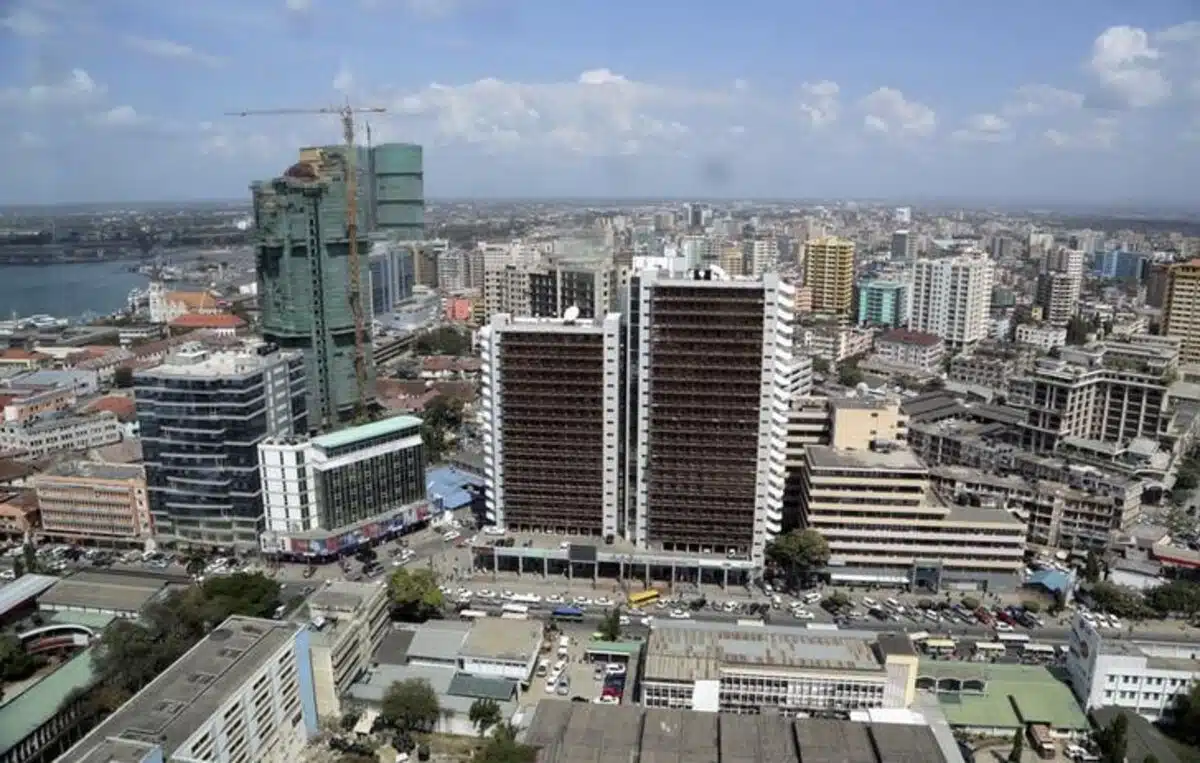Nigeria’s annual inflation eased for the sixth consecutive month in September 2025, falling to 18.02% from 20.1% in August, following the Central Bank of Nigeria’s (CBN) first interest rate cut in five years, according to new data from the National Bureau of Statistics (NBS).
The 2.1 percentage-point drop marks the sharpest decline since April, when consumer prices began their downward trend. Based on the old methodology, September’s inflation rate is the lowest since May 2022.
On a yearly basis, the decline represents a 14.6 percentage point reduction from the 32.7% peak recorded in September 2024.
The statistics agency said that on a month-on-month basis, headline inflation stood at 0.72% in September, slightly below the 0.74% recorded in August.
Food prices, a key driver of overall inflation, eased sharply during the period.
Food inflation dropped to 16.8% in September from 21.7% in August and 37.7% in the same month of 2024. The decline brings prices closer to pre-pandemic levels, when inflation was below 15%.
On a monthly basis, food inflation fell to -1.5% from 1.6% in the prior month, reflecting falling average prices of staple goods including maize, beans, eggs and tomatoes.
Core inflation, which strips volatile food and fuel prices, also moderated, easing to 19.5% down from 20.3% in August.
“On a month-on-month basis, the core Inflation rate was 1.42% in September 2025 down by 0.01% compared to August 2025 (1.43%), the NBS said in its Consumer Price Index Report.
Moderation supports further rate cuts
The slowdown comes just weeks after the CBN reduced its Monetary Policy Rate (MPR) by 50 basis points to 27%, marking the first policy easing since 2020.
The central bank said the decision was influenced by easing price pressures and stronger macroeconomic conditions. To further support financial conditions, the CBN also cut the Cash Reserve Ratio (CRR) for commercial banks by five percentage points to 45% and narrowed the asymmetric corridor around the policy rate to plus or minus 250 basis points.
The decline in consumer prices is consistent with the expectations of policymakers, creating room for another rate cut before year-end.
Market analysts believe the easing cycle reflects the CBN’s gradual shift from price stability to growth-oriented policy as inflationary pressures recede.
Elevated food prices pose risks
However, the World Bank has cautioned that Nigeria’s disinflation trend remains fragile amid “stubbornly high” and “erratic” food price movements, urging caution in the pace of monetary easing.
Food inflation surged from 22.5% in February to 37% in July 2025 before easing to 21.7% in August, reflecting what the lender described as a volatile pattern.
In its latest Nigeria Development Update, the Bretton Woods institution said spillover effects from policy missteps by the previous administration and persistent supply constraints have continued to fuel food price pressures despite ongoing fiscal and monetary reforms.
According to the World Bank, import restrictions and “exceptionally high” tariffs on key staples and production inputs have constrained domestic supply.
“These import restrictions aim to support domestic production but often undermine competition, encourage tax evasion, and drive up prices, as domestic production cannot meet demand,” the report stated.
While the latest inflation data signals progress in restoring price stability, analysts warn that the pace of disinflation could be uneven if food supply pressures persist.

